WEF-supported "Wellbeing Economy" is a Reincarnation of Marxist Totalitarianism
They hope that we will not notice the wolf under the sheep's clothing
Unless you have lived under a rock for the last several years, you probably heard the famous prediction from the World Economic Forum:
As the idea of being happy while owning nothing sounds ridiculous to many of us, the fact-checkers tended to write this forecast off as another futuristic fantasy of the WEF, needlessly amplified by crazy right-wing conspiracy theorists.
Far from it, plans to “make us happy and own nothing,” with the definition of happiness tightly conforming with the priorities of the globalist world masters, are well underway, as this recent WEF agenda article exemplifies:
What is “Well-being,” and What Is the Problem?
According to Merriam-Webster, well-being is the state of being happy, healthy, or prosperous:
Despite a simple one-sentence definition, the true meaning of happiness is elusive. This is because happiness is deeply individual - as we are wonderfully different.
A retired homebody may be happy staying home and watching TV all day. A young globetrotter would find such life most unappealing and will yearn for new impressions and chances to meet exotic people and visit scenic places. An activist, for example, a climate activist or an antivaxxer, would be the happiest fighting for their favorite cause while amidst a community of like-minded people. (I belong to the latter category and thank each of you for being with me)
The people in the collage below are happy, and yet what makes them happy is completely individual:
Can we measure the above persons’ happiness — their well-being — using the same exact scale for each of them? I hope you, my dear reader, would agree that it would be crazy to apply a one-size-fits-all scale of happiness to everyone!
And yet, this is what the WEF and its ideological parent, the Club of Rome, want. In its book “Earth 4 All”, the Club of Rome defines well-being as:
Conspicuously missing from the definition of well-being is freedom and choice.
That omission is not accidental.
The Club of Rome suggests that instead of focusing on the GDP, our leaders should define “wellbeing” in the same way for everyone — and then strive to maximize it.
While I have nothing against helping people be happier, I am alarmed by the cookie-cutter approach of using the same measurement of well-being applied to diverse people.
Enter the Wellbeing Alliance
“Wellbeing economy” is not a fringe term and is now accepted by six governments, such as Scotland, New Zealand, Canada, and now additionally by Australia:
A Deeply Collectivist Agenda
The intentions of the planners of the so-called “well-being community” revolve around collectivism and a state-planned economy. Instead of private investors allocating funds to the most profitable projects, well-being capital will be “directed to activities with high social and environmental benefits.”
Special funds will be created to further effect the “system change”:
Instead of salaries fluctuating with individual contribution, supply, and demand, workers will own businesses and will be paid “according to their social value”:
As always with worker-owner businesses, a question is, who and for what reason would start new businesses? But I digress.
They propose that wages be determined by social value. Which workers will be deemed to have the highest “social value”? Their proposal leaves that unstated, and we can only guess what the promoters of the “well-being economy” mean here. But, it would be safe to say that political loyalty is always rewarded in all such “pay for social value” schemes.
Wellbeing Art
The funniest and the most touching part of their proposals is about, believe it or not, the fine arts. The planners are unhappy with current artists depicting whatever they want and selling art. Instead, they want art to fit their agenda:
I come from the former Soviet Union, so such a proposal rang a bell. This was the exact approach of the Soviet Communists: they created a new style of art called socialist realism, depicting happy workers wisely guided by the Party.
Some socialist realism paintings are shown below, some closely resembling the newly popular nature worship:
A “collective mechanism to support artists’ livelihoods,” mentioned above, existed in the USSR to make artists and writers depend on government handouts. It was called “the Writers’ Guild.” The Guild members were amply rewarded with free spacious apartments, big stipends, and so on. As a result, there was no shortage of low-talent writers willing to conform most closely to the party's line.
Future “wellbeing realism” paintings, glorifying WEF leaders and generated by AI, might look like this:
Radical Reshaping of Health and Housing
The proponents of the “well-being economy” are unhappy about us eating meat and living in individual, comfortable dwellings. Meat eating will be discouraged, and so will be out-of-season products, to reduce emissions of CO2 during transportation of food. So, good luck buying strawberries out of season.
Communal housing owned by the government will be commonplace:
The WellBeing Alliance has a nice explainer page (archive link) exploring key well-being concepts. An example is here:
“Marxian Economy” Demands Equality of Outcomes
Far from being a minor mention, the “Marxian” concept of equality of outcomes and elimination of owner profit is the center of the proposed “well-being economy.”
The already mentioned plan to have a “low ratio between highest and lowest paid” is the most radical in its scope and is highlighted in detail in the Club of Rome’s book “Earth for All,” which I had to purchase. The plan is aptly named “Scenario Giant Leap.” (!)
This giant leap involves abandonment of the Western style of thought, called “decolonizing the mind,” and the introduction of measures promoting extreme income equality:
The above-mentioned Universal Basic Income (UBI), underlined in blue, is a long-held goal of the WEF and the Club of Rome. It is intended to bring about universal poverty and reduce resource use, as I explained in my post from 2022. Scroll down to the section titled “Universal Basic Income is Universal Poverty” for details:
The poverty resulting from UBI is intentional. The planners of the “giant leap” intend us to use far fewer resources and cede land back to nature. As the Club of Rome explains on Page 80:
No Judgment Expressed
I always appreciate my readers’ capacity for independent thought. I try to report facts to you, and I know that many of you will arrive at a well-reasoned judgment.
Some people could legitimately say that we need to rein in resource use, become poor, and live in government-owned communal co-housing while consuming the new “well-being art” to keep impure thoughts out of the way, to save the planet from CO2.
Some other people would object to their wishes being ignored. They might disagree with treating unique individuals as masses for “Marxian experiments” and collectivist agenda wheeled in under the guise of “well-being.” I always appreciate lively debates and hope that supporters of all points of view can express their thoughts in comments.
Additionally, I want to thank my paid subscribers because I spent their hard-earned money to purchase the Club of Rome book Earth for All, which I will review further later.
Please let us know your thoughts about “Marxian well-being,” promoted by the WEF and the Club of Rome. Comment away!





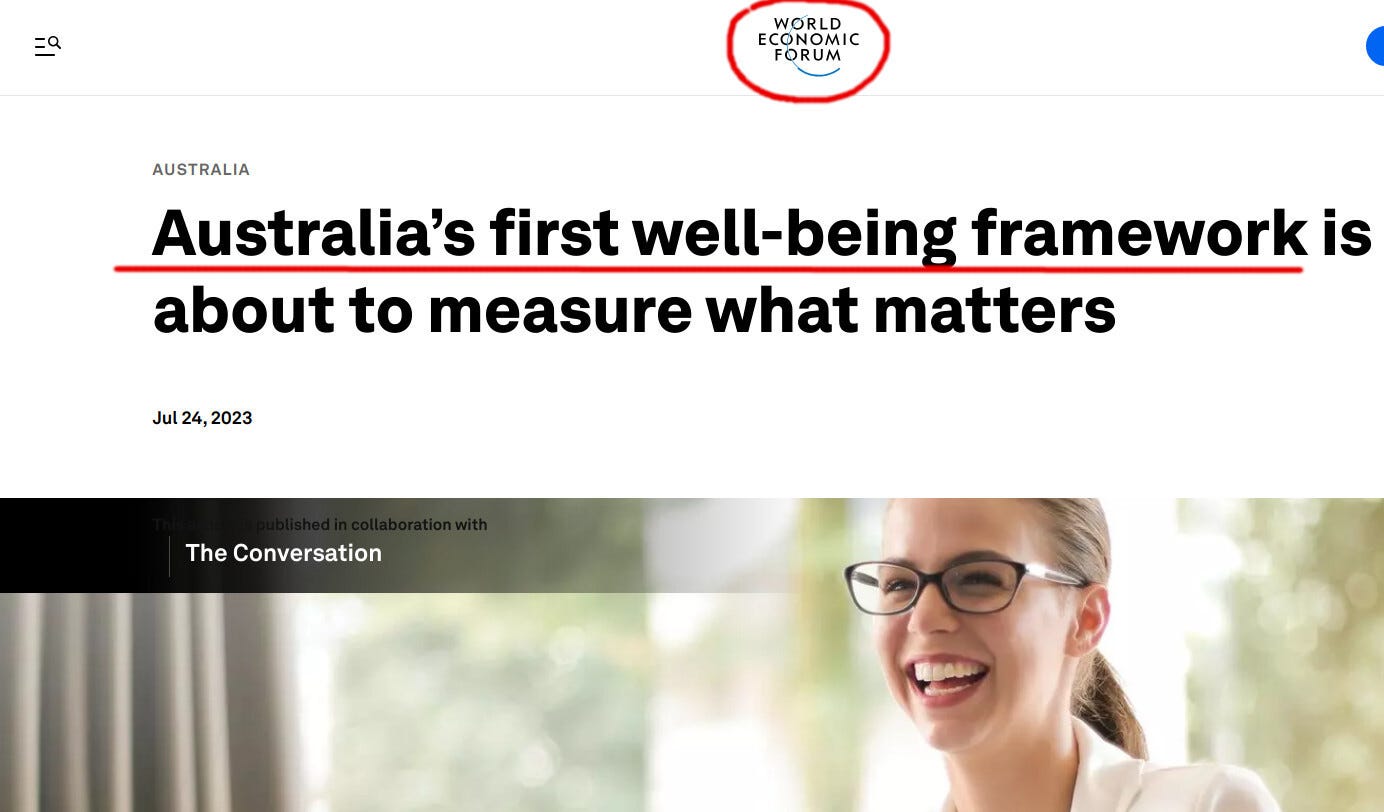



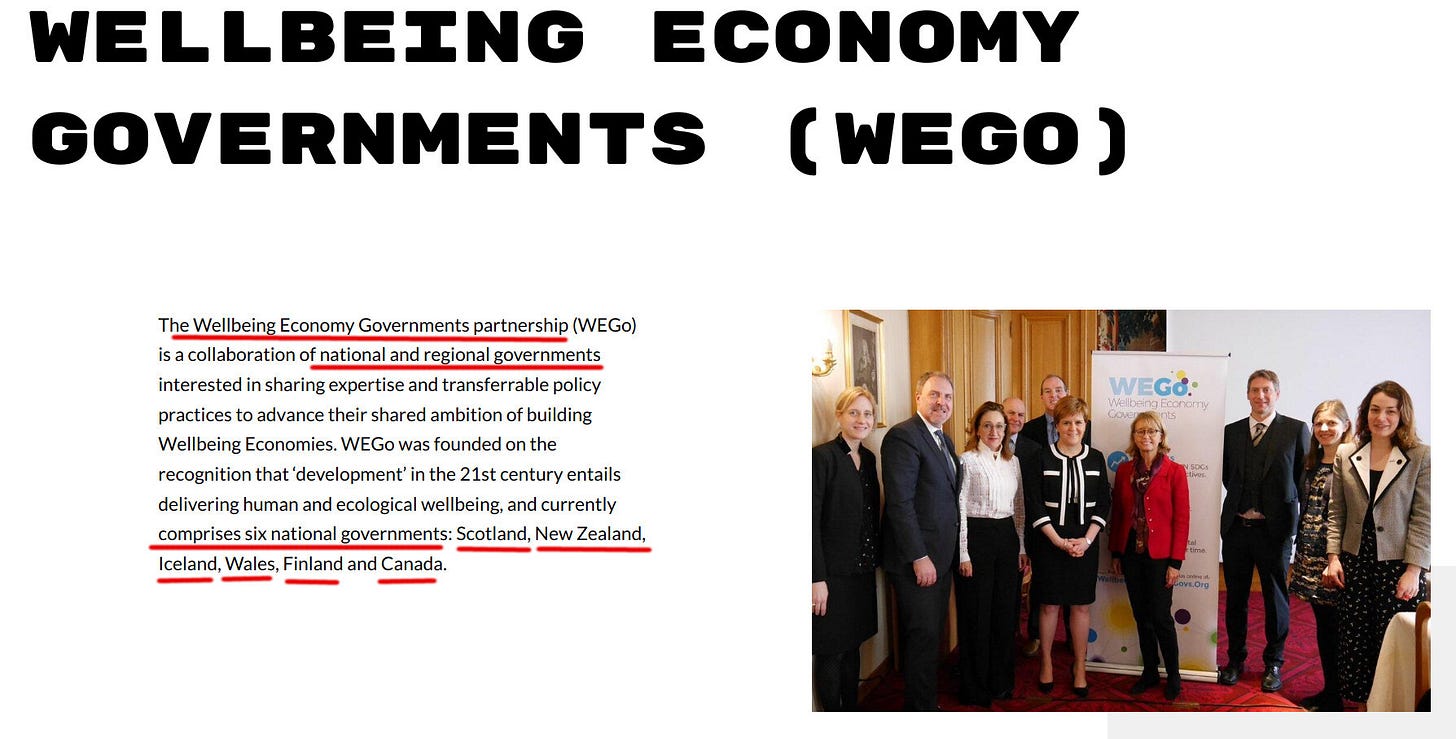
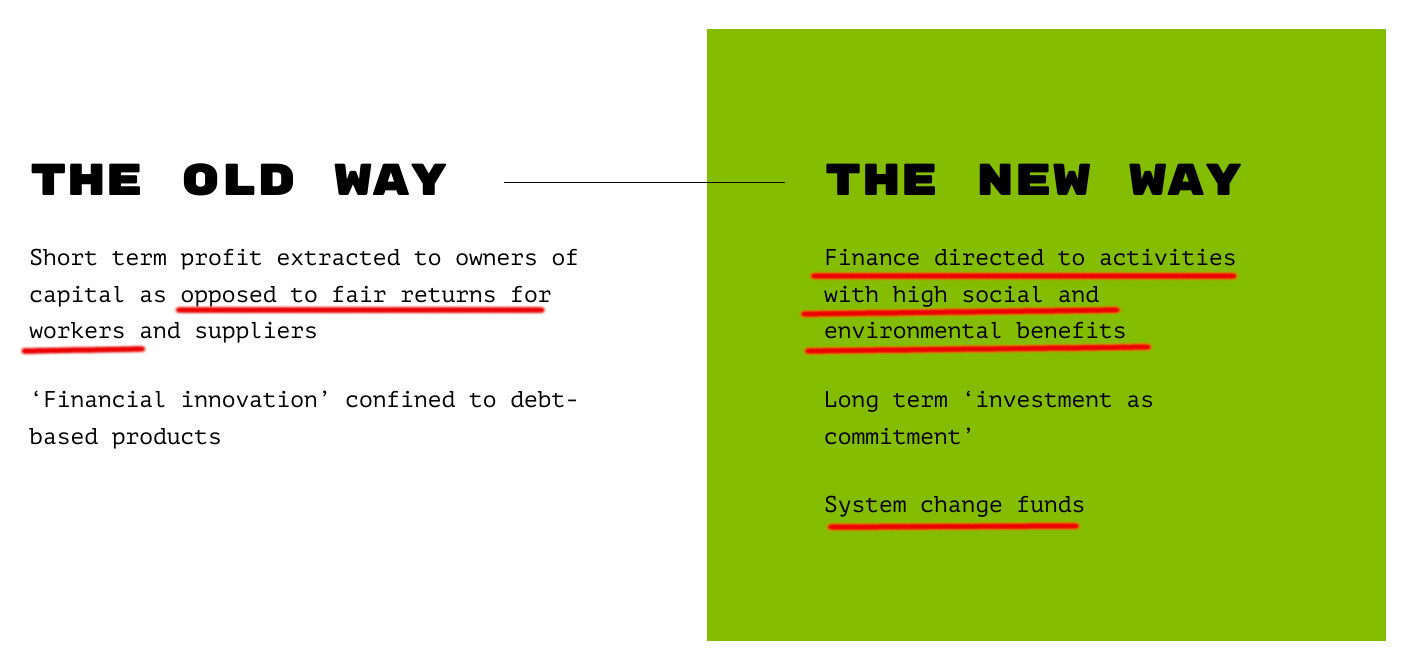

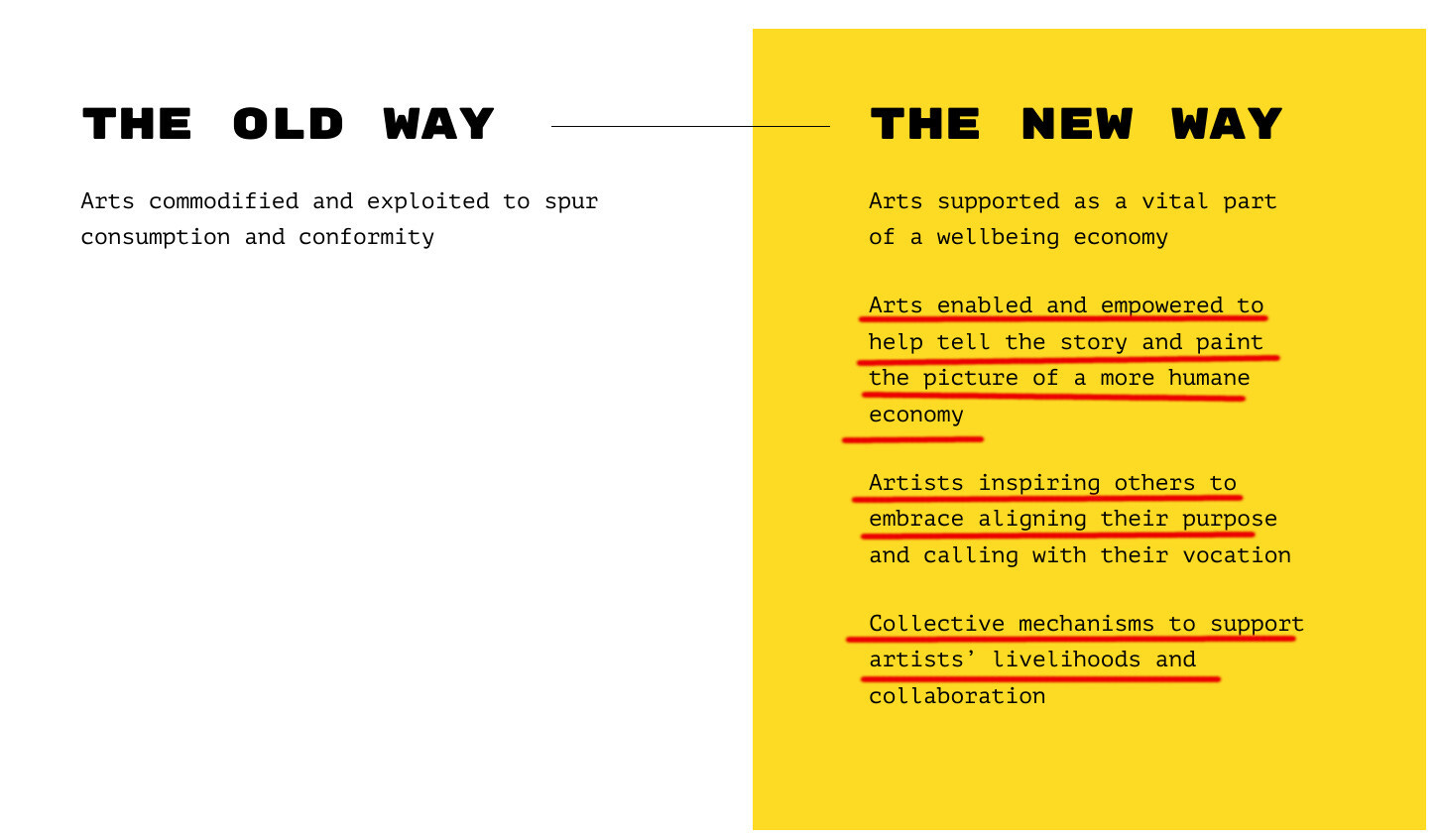
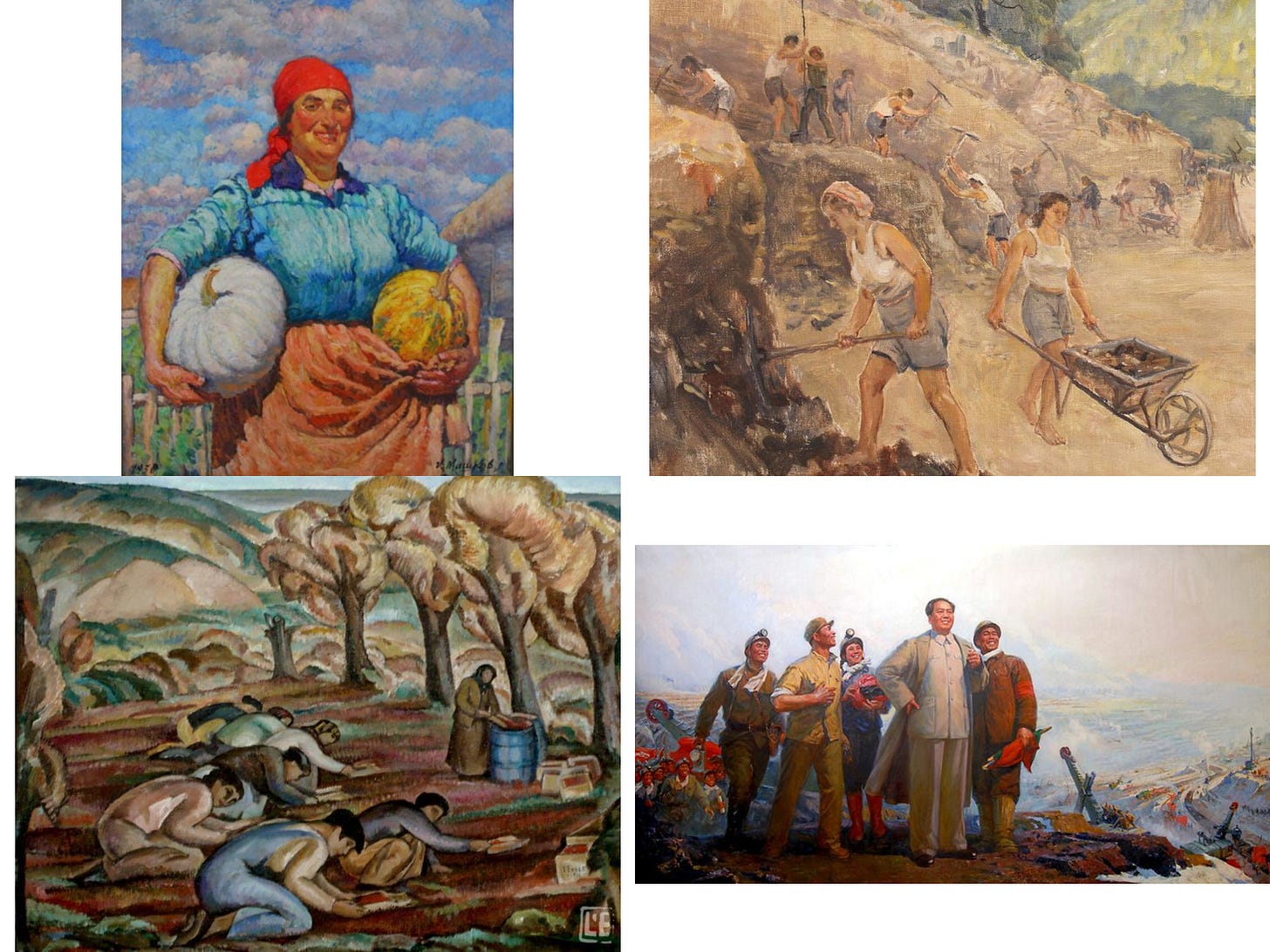

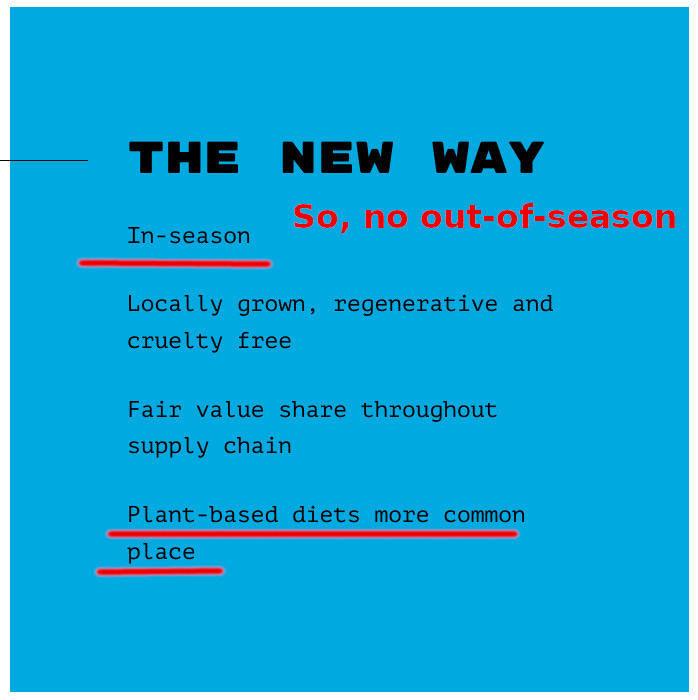


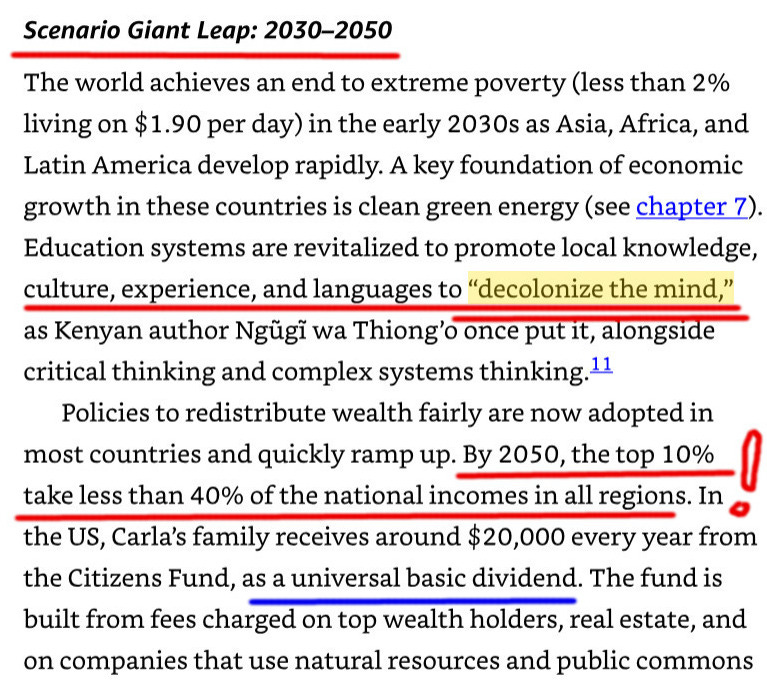

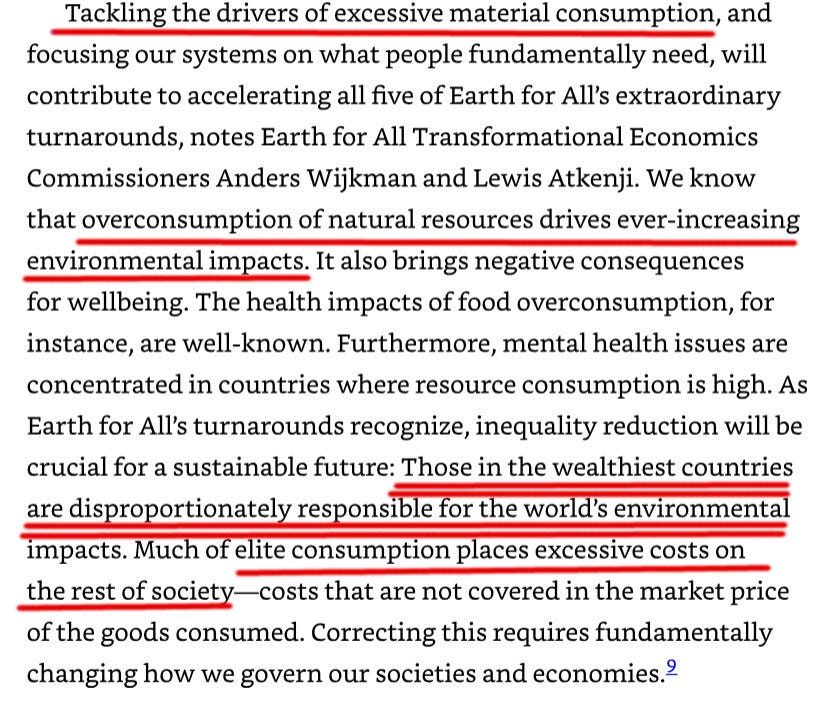

Important - this post was updated with an example of future "wellbeing realism art painting".
Open the post again and scroll down to the "art" section
Discussed the state of play with a friend who can't connect the dots. He thinks Govt is benevolent. I cited multiple agendas and sources until I was blue in the face to demonstrate that govts are *malevolent*. He can't see it. Won't see it. You can't find information that you are not looking for.
Serfdom, servitude, subjugation, suffering. Everyone can choose how they play this game of life. There are no refunds.
Resist.